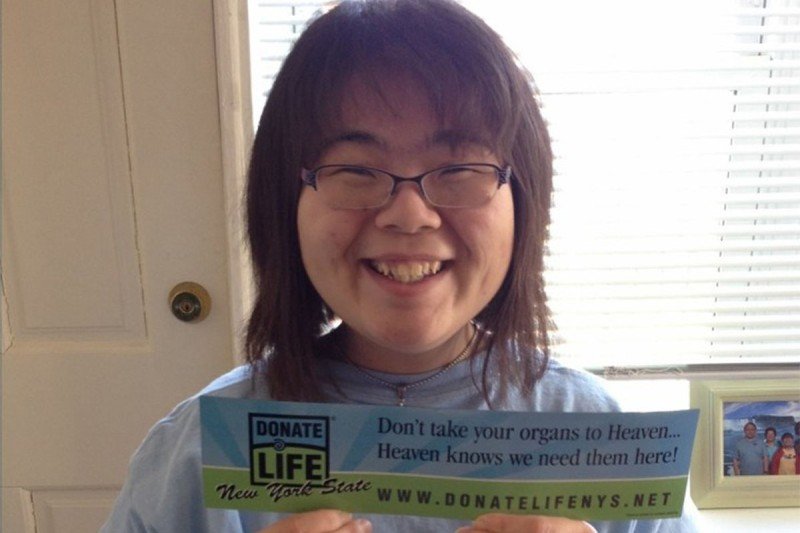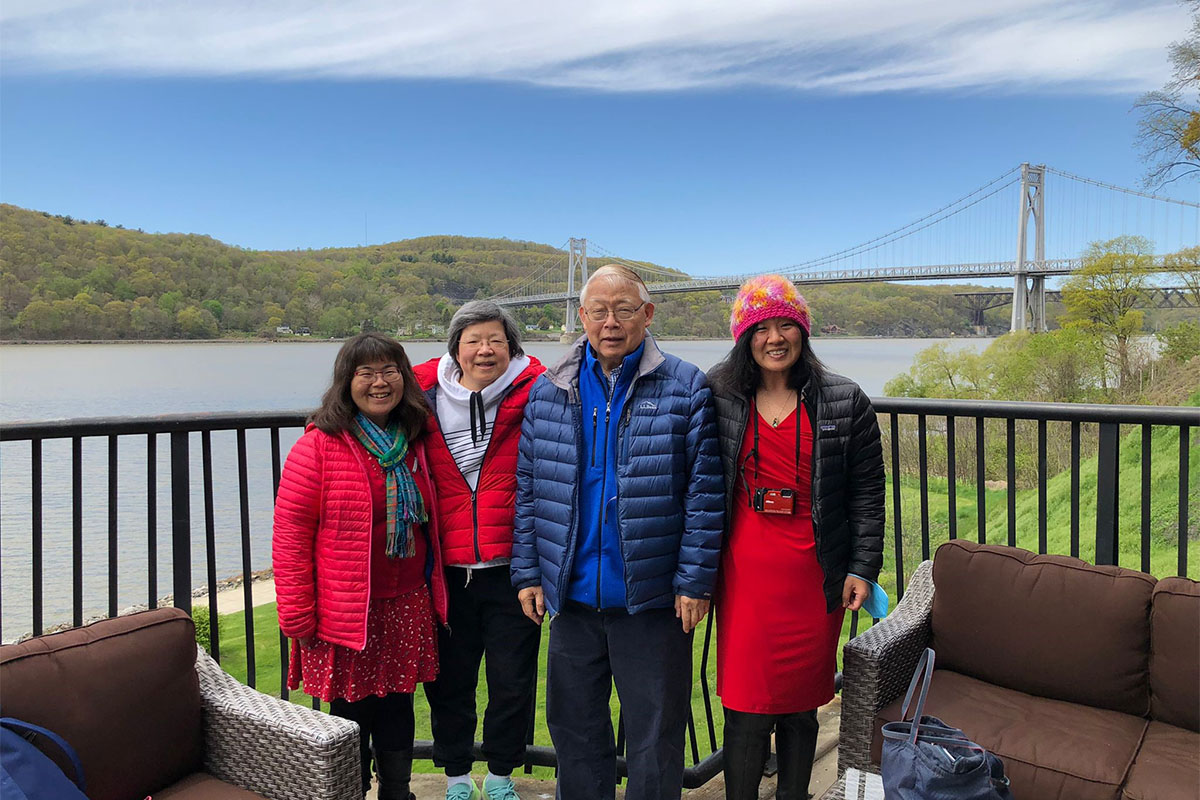
Mary Wu remembers the 2012 Rose Parade like it was yesterday. The roar of the spectators lining Colorado Boulevard as each float came into view. The warmth of the New Year’s Day sun. Her perch atop the Donate Life Float.
“I can’t put it into words,” says Mary, a patient financial services specialist at Memorial Sloan Kettering Westchester. “It was an experience like no other.”
She also fondly recalls the people she met while decorating and riding the float.
“I met a woman who had a hand transplant,” she says. “I met another woman who had a new heart valve from a deceased pig. The African-American gentleman who sat next to me was the kindest, most jovial person. He had a new heart from a young man.”
For Mary and many of her 27 fellow float riders, what transpired that day 10 years ago in Pasadena was literally a ride of a lifetime.
Surviving at All Costs
Mary is a self-described “ABC — American-born Chinese,” whose parents immigrated to the U.S. Her father was born in Shanghai and grew up in Hong Kong. Her stepmother was born in Taiwan.

They settled in Thornwood, a suburb of New York City “where you could count the number of Asian people on one hand,” says Mary. Feeling like you don’t belong is challenging enough without being dealt the devastating blow the family was when Mary was age 3. Born with renal agenesis (one kidney hadn’t developed, the other was shrinking), Mary was in kidney failure and would need a transplant.
“Suddenly, my parents were forced to navigate a health care system they knew nothing about,” Mary reflects. “I always ask my father how he did it. He says: ‘You go on autopilot to survive. You don’t think. You just do.’”
After spending almost two years on dialysis, Mary underwent a transplant, receiving a kidney from a deceased donor (her family didn’t match).
“I don’t remember my young childhood of needles, procedures, and dialysis treatments,” Mary says. “What I know about my illness, I know from my father.”
Do Good and Help Others
Mary spent the next few years “making friends and enjoying being a kid,” she says.
However, shortly before she turned 12, her transplanted kidney began to fail. She needed another transplant.
“This was my second chance at life,” Mary reflects. “Receiving two life-saving transplants is very humbling. I am alive because of the selflessness of donors and their families. My goal since then has been to live life to its fullest and help others as a tribute to them.”
As part of that tribute, Mary held a few social-services jobs after graduating from Manhattanville College in 2004. She arrived at MSK in 2006. In her current role, she helps new patients understand our billing and insurance policies, and financial assistance options.
“It is a true gift to work at MSK because I get to help patients and their loved ones,” she says. “People are at the center of everything I do.”
The Importance of AANPHI Heritage Month
Wu spends much of her free time as an advocate, working to raise awareness about the critical need for renal disease research and organ/tissue donors, particularly within diverse communities. She wrote a book about her experiences, “Confessions of a Kidney Transplant Recipient,” published in 2013.
“Death and organ donation are taboo topics for many diverse populations, such as the Asian community,” Mary explains. “I take every opportunity to share my story and encourage people to register as organ donors.”
“Asians often are known as the ‘model’ ethnicity who don’t speak out or make any noise,” she continues. “No shame here that I am loud and proud.”
Mary also volunteers, counseling donor families, as well as pediatric and young adult transplant candidates and recipients.
During the COVID-19 pandemic, Mary wrote and published a book of poetry, “Kaleidoscope: A Collection of Poems.” This month, she is donating a portion of the proceeds to Asian Women for Health, a community-based organization focused on Asian women’s health and wellness.
“I learned at a young age that what we do or don’t do can have the best or worst of ripple effects,” Mary says. “Let us always aim for the best.”
This year marks the 27th anniversary of Mary’s second kidney transplant. Despite some “health hiccups,” Mary is “doing very well and grateful for each day where I learn and experience something new that makes life extraordinary,” she says.
This, she adds, is The Wu Way.